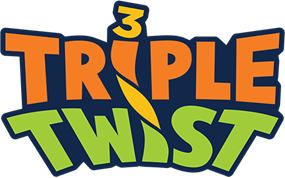PHOENIX – The Arizona Department of Gaming – Division of Problem Gambling and the Arizona Lottery today announced their commitment as supporters of the 2021 Gift Responsibly Campaign, joining more than 80 other lotteries and community organizations from across the US and Canada, and around the world. The campaign is organized by the National Council on Problem Gambling (NCPG) and the International Center for Youth Gambling Problems and High-Risk Behaviors at McGill University. It is endorsed by the World Lottery Association (WLA) and the North American Association of State and Provincial Lotteries (NASPL).
“Today’s announcement demonstrates the partnership between the Arizona Lottery and Department of Gaming – Division of Problem Gambling in our ongoing efforts to mitigate and eventually end the scourge of problem gambling,” said Arizona Lottery Executive Director Gregg Edgar. “The Gift Responsibly Campaign is raising awareness about the risks associated with gifting lottery tickets to minors during the holiday season, or at any time of the year, and that’s a message we can all support.“
Our support of NCPG’s Gift Responsibly Campaign involves encouraging age-appropriate play through public service announcements and social media. The campaign will run throughout December.
“Research linking early exposure to gambling to future problem gambling and other risky behaviors is why the Arizona Department of Gaming is involved in the campaign. Our message is a simple one: lottery tickets are appropriate gifts only for adults,” said Ted Vogt, Director, Arizona Department of Gaming.
“Young people report that their first gambling experiences occur around ages 9-11. Based on studies of adults with gambling problems, the earlier a person begins gambling, the greater the likelihood of developing a problem with gambling,” said Elise Mikkelsen, Director of the Division of Problem Gambling. “Regardless of age, during this holiday season the Division of Problem Gambling, along with the Arizona Department of Gaming and the Arizona Lottery, want you to know there is help and hope available.”
Arizonans who may struggle with gambling can access personal, confidential treatment and recovery services calling the Division of Problem Gambling’s 24/7 Helpline at 1-800 NEXT-STEP or by texting NEXT-STEP to 53342. Additional resources such as Gambler’s Anonymous, a self-screening quiz, and more can be found at problemgambling.az.gov.
“We are very appreciative of the Arizona Department of Gaming & Arizona Lottery for their efforts to educate adults and retailers about the potential consequences associated with underage lottery play,” said NCPG Executive Director Keith Whyte. “The evidence clearly shows that exposure to gambling as a youth increases the probability of gambling problems later in life. Regardless of what time of year it is, adults should find gift options for children other than lottery tickets.”
About ADG
Established by the Arizona State Legislature in 1995, ADG is the state regulatory agency for tribal gaming, racing and pari-mutuel/simulcast wagering, event wagering/fantasy sports and unarmed combat sports. ADG also provides and supports education, prevention and treatment programs for people and families affected by problem gambling through its Division of Problem Gambling and 24-hour confidential helpline, 1-800-NEXT-STEP.
About the National Council on Problem Gambling
NCPG is the national advocate for people and families affected by problem gambling. NCPG is neutral on legalized gambling and works with all stakeholders to promote responsible gambling.
About International Center for Youth Gambling Problems and High-Risk Behaviors at McGill University
For over 20 years, the International Centre for Youth Gambling Problems and High-Risk Behaviours at McGill University has been at the forefront of leading-edge research aimed at identifying and understanding the critical factors related to youth gambling issues.









